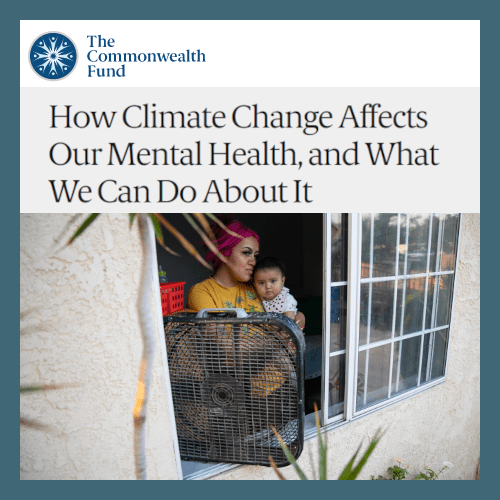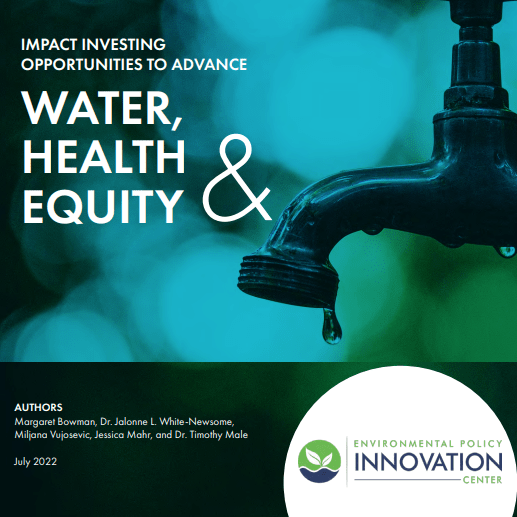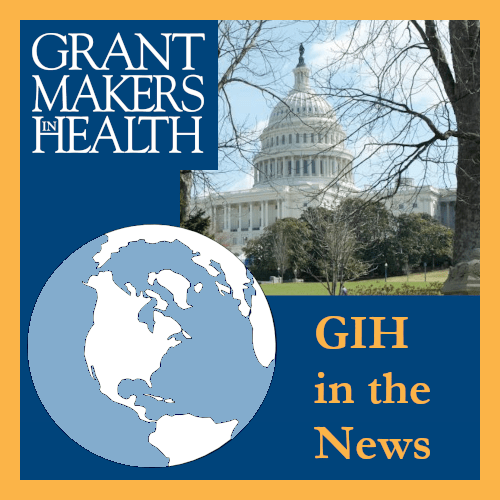How Climate Change Affects Our Mental Health, and What We Can Do About It
The Commonwealth Fund recently published an article on how climate change doesn’t just affect our physical health but can also harm our mental health, further taxing a behavioral health care system already in crisis.
Preventing Toxic Petrochemical Rail Disasters
During this webinar, speakers provided an overview of the key stakeholders involved in determining rail safety, the state and federal hazardous materials transport policies that govern their actions, and recommendations for immediate and decisive action by government and industry.
Protecting Public Health and Safety in the Event of Toxic Petrochemical Rail Disasters
During this webinar, participants heard from public health experts and leaders providing real-time guidance for ground-zero and near-field communities impacted by events in East Palestine, Ohio, who, over the past decade, have championed responsive public safety policies for the Ohio River Valley region and other industrialized high-risk areas in the US.
Strengthening Climate, Health, and Equity Work in the Midwest
This meeting gathered representatives from philanthropy, government, health and environmental sectors, and grassroots and community groups in the Midwest for learning, relationship-building, and information-sharing.
Impact Investing Opportunities to Advance Water, Health, and Equity
A new report from the Environmental Policy Innovation Center and supported by the Robert Wood Johnson Foundation outlines ways that philanthropy can use strategic investments to help ensure that drinking water is safe for all.
Cara V. James Interviewed on TED Health Podcast: Advancing Public Health
Grantmakers In Health President and CEO Cara V. James was interviewed by Shoshana Ungerleider on the September 21, 2022 episode of the TED Health podcast about challenges faced by the U.S. public health system.
Centering Racial Justice to Address Climate Change: Learning What it Takes
In 2018, the Kresge Foundation launched the Climate Change, Health, and Equity (CCHE) initiative as a 5-year, $22 million commitment to accelerate action on climate change and climate-related inequities in health. Since its inception, the CCHE network has worked in distinct, yet aligned strategies that focus on health institutions, practitioner and professional societies, and community-based organizations. The priority was to bring together diverse grant-funded partners at different points along their equity journey, with initiative partners providing evaluation, technical assistance, and support to sustain the network.
Children’s Environmental Health Day: Actions Needed Now to Protect Our Children’s Health
It has been over a decade since the World Health Organization raised the alarm that chronic diseases—including cardiovascular, cancer, diabetes, obesity, and metabolic syndrome—are rapidly becoming an epidemic in developed nations, and increasingly, in developing nations. Escalating rates of neurocognitive, metabolic, autoimmune, and cardiovascular diseases cannot be solely attributed to lifestyle, genetics, and nutrition. Prenatal, early life, and ongoing exposures, along with bio-accumulative toxicants, are playing a large role in the increased incidence of chronic disease. In fact, we need only look at the statistics to see that chronic disease rates in children are on the rise, and this can often be linked to toxic exposures.
Resourcing Midwest Health Sector Work on Climate Change and Health Equity
This meeting will explore the current landscape of federal funding for Midwestern health-focused work on climate impacts and solutions.
Leveraging Federal Funding for Climate Justice in Midwestern Frontline Communities
This meeting will discuss pathways for federal resources with high relevance for climate justice work in the Midwest, with a focus on funding managed by the US Environmental Protection Agency.
Newsletter Sign Up
Want to sign up for the GIH Bulletin? Click here to get on the list.
Contribute to the GIH Bulletin and Blog
If you are interested in contributing your story or expertise to the GIH community please review our Editorial Submission Guidelines.





